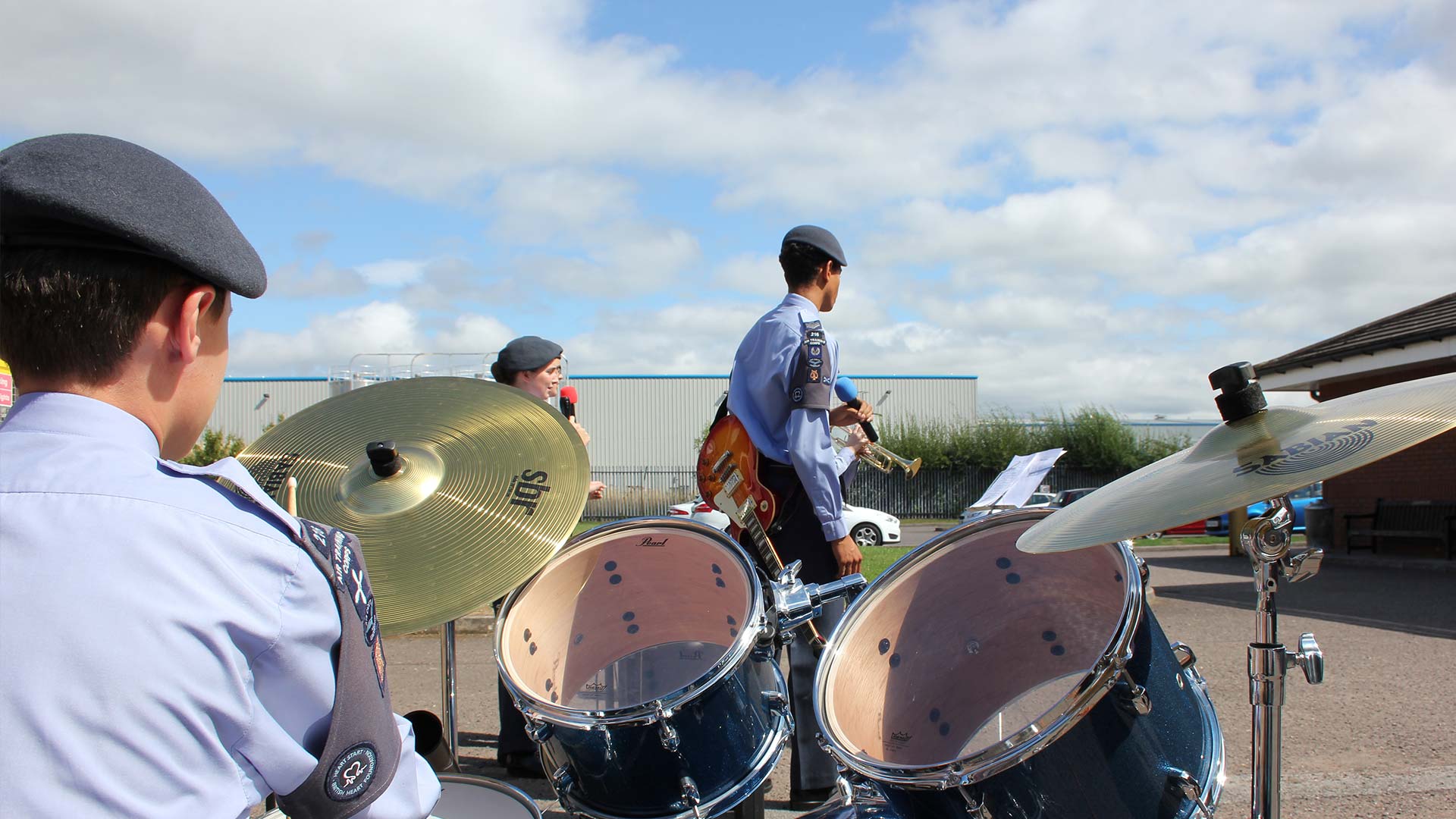Aside from all the great experiences and new skills you’ll gain as an Air Cadet, you can also take away real qualifications that will set you apart from the crowd when you head to university or begin your chosen career.
For starters there’s the Duke of Edinburgh Award that employers everywhere recognise as a great achievement. You can take on the challenge as part of your adventurous training, working your way through the levels all the way to Gold – something to be really proud of.
The Classification system is a major part of the Air Cadets, progress from first class cadet up to master cadet learning all about the RAF, airmanship, map reading, radio communications and much more!
BTECs
Our partnership with CVQO (formerly the Cadet Vocational Qualification Organisation) means we are able to provide a huge amount of internationally-recognised qualifications to our cadets.
BTEC Certificates and Diplomas, as well as leadership and management qualifications, from the Institute of Leadership and Management (ILM) are all available at minimal to no cost.
Aviation Qualifications
With a number of the RAFACs aims focused on aviation, the Squadron offers a comprehensive training syllabus, known as the classification system. Completion of these levels will lead you towards the two BTEC awards listed below, and on the way you’ll learn everything from the basics of how aircraft fly, up to rocketry, space engineering and the implementation of Air Power in modern operations!
Award in Aviation Studies
You’re eligible for this once you’ve completed ‘First Class’ and ‘Leading Cadet’ training. There is a registration fee for this award.
Certificate in Aviation Studies
Once you achieve the Master Cadet training syllabus you’re automatically entitled to this qualification without any further work. And it’s free to cadets. This award should also be recognised by as a Science qualification requirement for RAF entry.
First Diploma in Public Service
This internationally respected qualification mixes theory and practical elements with an emphasis on leadership, teamwork, communications, problem solving and fitness. Improving your life skills, the syllabus includes professional CV preparation, interviewing techniques, communication, first aid, adventure training, health and nutrition. Most of the content is covered by activities you’ll be doing normally, and you also complete an additional project and workbook. Plus, it’s free if you’re between 16 and 19 years old!
First Diploma in Music
This course helps you develop a basic understanding of music as a profession, and combines both technical skills with practical elements and research. By the time you finish, you’ll have demonstrated an understanding of all aspects of performance, including solo and ensemble work and how to manage rehearsals. You’ll also learn how to market, budget, advertise, programme and publicise a music event. You’ll be expected to be able to play a musical instrument prior to enrolling on the course, but do not have to be able to read music. This award is also free if you’re 16-19 years old.
